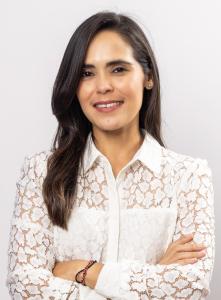Seminar
Details
The people are the main holders of sovereignty in the democratic system in Indonesia. Thus, the electoral process has an important role in carrying out democracy, so people should pay attention and understand all aspects of organizing elections. One of them is about the electoral system used by Indonesia today, namely the open proportional system.
The open proportional system allows for closeness between voters and the legislative candidates to be elected. This is because voters have direct freedom to choose legislative candidates who are considered to best represent their interests and aspirations. Therefore, this system will create a closer relationship between voters and elected representatives. This is because voters have a direct role in determining who will represent them.
However, some parties want the open proportional system to become closed proportional, because the open proportional system is seen as creating opportunities or a high risk of money politics. Candidates who have large financial resources can use them to influence voters. Thus, this system requires large political capital for the nomination process. Legislative candidates must incur significant costs to run a political campaign; think of the costs of advertising, promotion, transportation, logistics. In a way, this system will be an obstacle for candidates who do not have sufficient financial resources, thus disadvantaging candidates who come from lower economic backgrounds to participate in the political process.
If the change from proportionally open to proportionally closed elections is due to money politics, there will be no end to it and this change is not a solution. In fact, the main factor in the occurrence of money politics is not the electoral system, but the condition of the people who tend to be weak in understanding political information and how politics and democracy should be carried out, making them easy targets for the practice of money politics.
Along with the above paradigm, there are also things that need to be considered and fought for, namely the struggle for women's politics in parliament. Currently, women's politics is only based on 30% affirmation during nomination. There are other things that need to be encouraged, namely the level of capacity of women parliamentarians and women parliamentarians becoming vocal points on women's issues.
Seeing this paradigm, Konrad-Adenauer-Stiftung (KAS) together with B_Trust Advisory Group organized a National Seminar with the theme Whether the closed proportional electoral system is a solution for women's political struggle in answering the challenges of electoral democracy in Indonesia today.
This seminar aims (1) to consider the advantages and disadvantages of open & closed electoral systems, (2) to provide insights into electoral systems that have the potential to support women's political struggle, (3) to provide an overview of recommendations for improvements to the implementation of both open and closed proportional electoral systems.
Agenda
13:00 – 13:30 Opening
By the MC – Human Resources Development Agency (Ministry of Home Affairs)
13:30 - 14:00 Welcoming Remarks
Bandung Trust Advisory Group (B_Trust)
Indonesian Political Women's Caucus (KPPI)
Konrad-Adenauer-Stiftung (KAS)
14:00 -14:15 Keynote Speech
Dr. H. Bima Arya Sugiarto
Deputy Minister of Home Affairs of the Republic of Indonesia 2024 - 2029 (tbc)
14:15 - 14:30 Introduction
By Moderator: Zulfiani Lubis – Editor in Chief of IDN Times
14:30 - 14:50 Material 1 - Closed Proportional Elections Do Not Guarantee the Disappearance of Money Politics
Speaker: Titi Anggraini, S.H., M.H - Association for Elections and Democracy (PERLUDEM)
14:50 - 15:10 Material 2 - Closed Proportional Elections are better than Open Proportional Elections
Speaker: Prof. Dr. R. Siti Zuhro, MA. - Senior Researcher of LIPI Political Research Center and Principal Political Researcher of BRIN
15:10 - 15:30 Material 3 - Women Politicians' Views on the Election System that Supports the Struggle of Political Women in Indonesia
Speaker: Dr. Ir. Hetifah Sjaifudian, M.P.P. - Member of DPR RI Period 2024 - 2029 GOLKAR Faction
15:30 - 16:30 Discussion / Q&A Session
Guided by Moderator
16:30 - 16:45 Closing
By the MC




